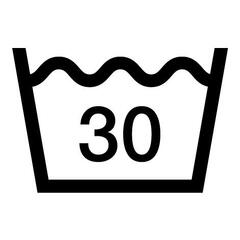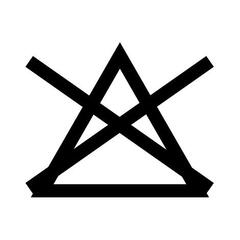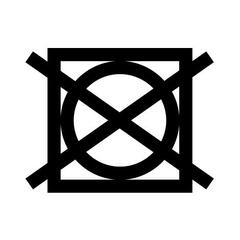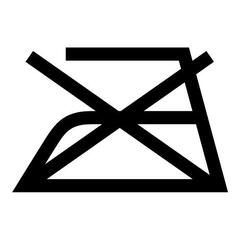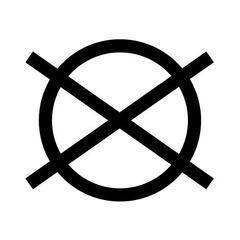Cut
Standard cut. The inner volume allows you to wear it over a warm 2nd warm layer such as a pullover or fleece.
Hood
Adjustable height with an elastic cord and tightening toggle.
Adjustable depth using a Velcro strip positioned at the back of the hood.
Visor at the top of the hood for good face protection.Removable hood.
Main component
2 layer component with coating and mesh lining (ventilated component)
COATING
The waterproof rating of a product depends on the following two main criteria: its component and its construction.
This product was made with a coating. A coating is like a kind of paint applied to the inside of the fabric that makes the component waterproof while remaining breathable.
However, it requires a liner to protect it.
COMPONENT
WATERPROOFING
Laboratory tests are conducted to guarantee the waterproof rating of a component. This is done by measuring the fabric's resistance to water pressure expressed in terms of the height of a water column in mm (based on the ISO 811 standard). The higher the water pressure, the more waterproof the fabric. A component with a 5000 mm waterproof rating, i.e. it can withstand the pressure of the 5000 mm column of water. This is also equivalent to 5000 Schmerbers.
JACKET
WATERPROOFING
We conduct laboratory tests that simulate rainfall scenarios in order to guarantee the jacket's waterproof rating. This garment has been subjected to a shower test using 60 litres of water/sqm/hour for 2 hours. This test reproduces the average conditions of a rain shower in the mountains.
BREATHABILITY
Component breathability is measured by its thermal evaporative resistance (RET).
This is its capacity to let water vapour generated by the body during physical activity escape and therefore avoid water accumulating on the skin.
The lower the RET, the more breathable the fabric.
RET ≤ 6: very breathable fabric
RET ≤ 12: breathable fabric
RET ≤ 20: not very breathable fabric
This product was assessed at 12 RET
HOW TO REACTIVATE WATER REPELLENCY
A fabric is water repellent when it allows water slide over its surface without seeping in. The fabric does not soak up water and therefore remains lightweight and breathable. The water repellent property is achieved by treating the fabric's exterior. This treatment needs to be renewed during the lifetime of the garment. The water-repellent property can be reactivated by putting the jacket in the tumble dryer for 10 minutes on low heat.
You can also use the waterproof spray (ref 855490)
Product design: our expertise
Our Quechua global design centre is based in Passy, at the foot of Mont-Blanc in Haute Savoie. This location makes it a real meeting place for our teams (designers, product managers, engineers, etc) and outdoor sports enthusiasts. A great asset for designing your mountain walking products and providing you with all our expertise.
OUR COMMITMENT TO CONSUME LESS WATER WITH THIS PRODUCT
In addition to the large quantity of water consumed to dye the textiles, waste water is discharged from the dyeing baths. To reduce our environmental impact, we use a mass pigmentation process that involves adding the colour pigments when the yarn itself is produced. For this jacket, we were able to use this method for the black model and we are considering using it for the other colours.
WHERE DO OUR JACKETS COME FROM?
Created in our international design centre at the foot of Mont Blanc in France, this jacket is then manufactured by our suppliers in Vietnam, Bangladesh, India and Morocco.
We collaborate closely with these partners who have real expertise in the manufacture of jackets.
Thanks to this relationship of trust with our industrial partners, we can create high-quality technical products.
Working conditions in our production workshops
We guarantee that our suppliers comply with our code of conduct. These suppliers are often located in developing countries where our presence helps to create jobs.
By conducting audits and having teams on site, we make sure that the working environment of the employees meets certain quality standards in terms of human respect, personal fulfilment and environmental protection.
